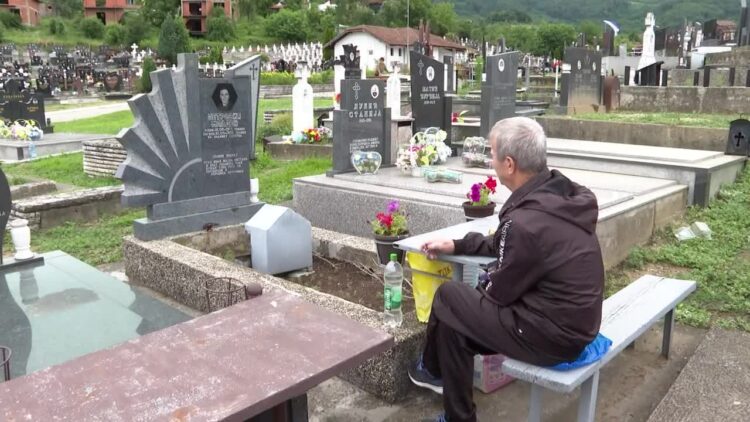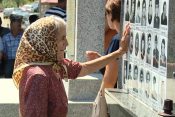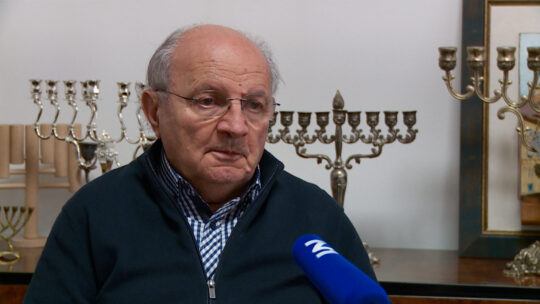
Family members of Serbs killed in 1992 in villages around Srebrenica told N1 on Sunday that they do not believe anyone will ever face justice for those crimes because when it comes to the Bosnian war, justice is being served selectively.
A memorial service for Serb civilians and soldiers who were killed on St. Peter’s Day, on June 29th, 1992, is being held every year a day after the commemoration for the Bosniak victims of the 1995 Srebrenica Genocide.
This year, the Serb Orthodox memorial service was held in the east Bosnian village of Zalazje, which was the site of a Bosnian army attack at the beginning of the war when Serbs laid siege to the eastern town of Srebrenica.
Family members of the victims laid wreaths and lit candles for their loved ones.
Among those killed in 1992 was Mladen Petrovic, who had just finished the first year of the Faculty of Mechanical Engineering in Tuzla.
“He was killed just before his birthday. I don’t know what to say, but today those who were behind the ambush, my colleagues from the Sase mine, are walking freely. Those who killed him,” said Ivan Petrovic, Mladen’s father.
He said he even saw two of those who participated in the attacks and that they punctured all four of his tires recently, but that he did not react.
“I didn’t, politics did what it did, politics also killed people, many of them were paid by both sides,” he said.
The brother of Marinko Grujicic, Stanoje, is also among those buried at the graveyard in Bratunac where victims of the attack were laid to rest.
He was 45 when he was killed in the village Sase, on that St. Peter’s Day. He left a son and wife behind.
“Nobody will face justice for the (killed) Serbs, whoever killed Serbs never answered for it, not only here but you can see that this is mostly the case everywhere,” said Grujicic, referring to the fact that Srebrenica’s Bosniak commander Naser Oric was indicted both in Bosnia and in front of the UN war crimes tribunal in The Hague but was acquitted of the murders themselves.
He was sentenced to two years for command responsibility, as he was in charge of whoever did it.
“I feel that it is unfair that our top officers and soldiers who were members of the VRS (Army of Republika Srpska) – even though it was not proven that they committed some crime – are in prison now while those who committed crimes against Serb children and civilians never faced justice,” Grujicic said.
Milojka Simic, whose husband Branko was also killed back then is also convinced that the crime will remain unpunished.
“I stayed behind with two children, my husband was taken away alive, 20 years later we found his bones and the worst part of it is that nobody ever faced justice for it, I don’t know what to say anymore,” she said.
“He was captured, taken away to Srebrenica alive, where they kept him. I came across information that later they (the victims) were tortured in a cruel way before being killed,” she added.
Jovana Zekic, the daughter of Obrad Vasic, who was also killed in the attack, said that families of the victims have nobody to turn to.
“We still don’t know anything, we don’t have any answers, we have nowhere to turn to for anything related to my father. There are more people (like us), I work at an organisation where I meet such people who are still searching and who knows until when they will,” she said.
According to the families of the victims, the judiciary has proven by its inaction in the case of the killings in the villages of Zalazje, Sase, Biljaca and Zagoni that Serbs are second-grade citizens.
The attack happened “on the biggest Serbian holiday, when they were unprepared, when they did not expect their neighbours to attack them from the Srebrenica protected zone,” said Srebrenica’s mayor, Mladen Grujicic.
He said that those who committed the crimes used the opportunity “to find as many people in their houses as they could so as many as possible would be killed in the attacks.”
“What is devastating for the judiciary, which should bring justice, is that it does it but selectively,” he said.
The head of the Centre for Research on War, War Crimes and Missing Persons of the Justice Ministry in Bosnia’s Serb-majority Republika Srpska (RS) region, Milorad Kojic, called the Hague-based International Criminal Tribunal for the Former Yugoslavia (ICTY), as well as Bosnia’s court, “courts of injustice.”
He said those courts “did nothing to prosecute those who committed the worst crimes.”





